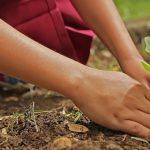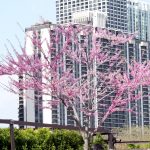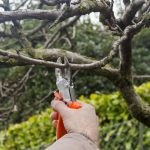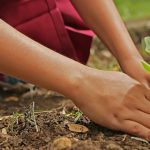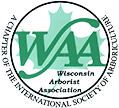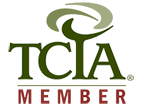
Adding a fruit tree to your Chicagoland home can be a fun & “fruitful” experience for the entire family. See which fruit trees are appropriate in our Illinois climate
The spring season has arrived in the Chicago area which means it is time to start getting back outside and giving your trees and shrubs the care and attention they need to grow healthy and strong in the growing season. This is also the time of year to consider planting new trees and shrubs on your property to help fill in the landscape and add natural beauty. At Hendricksen Tree Care, we are aware that this is not a normal Chicago spring given the COVID-19 situation. However, caring for and planting new trees on your property is still a safe activity as you shelter in place, especially if you order seeds for new plants and trees online.
While many people associate maples, oaks, and other types of deciduous trees with the Midwest, people sometimes forget that fruit trees can be grown successfully in Illinois. There are many types of fruit trees that grow well in Illinois including apple trees, cherry trees, peach trees, pear trees, and shrubs that grow berries. Fruit trees will not only add color and beauty to your landscape as they bear their flowers in the spring, but they will also provide you with your own fresh, delicious fruit come autumn. In this guide, we will discuss the types of fruit trees that can be grown in Illinois as well as the best tips for caring for your fruit trees for maximum yield.
If you need help from a professional arborist to plant your new fruit trees or care for your trees, our professionals at Hendricksen Tree Care can help. We provide a range of tree care services from tree planting to tree trimming to ensure the health of your trees through the growing season. We can also provide fertilization and maintenance services in the spring to ensure your trees get the nutrients they need to grow and successfully resist pests and diseases.
Types of Fruit Trees to Plant in Illinois
There are several types of fruit trees that can be grown successfully in the Chicago area and throughout northern Illinois. These fruit trees can be divided into two main groups: self-fruitful trees that can grow on their own through self-pollination, and fruit trees that require cross-pollination.
Self-Fruitful Trees
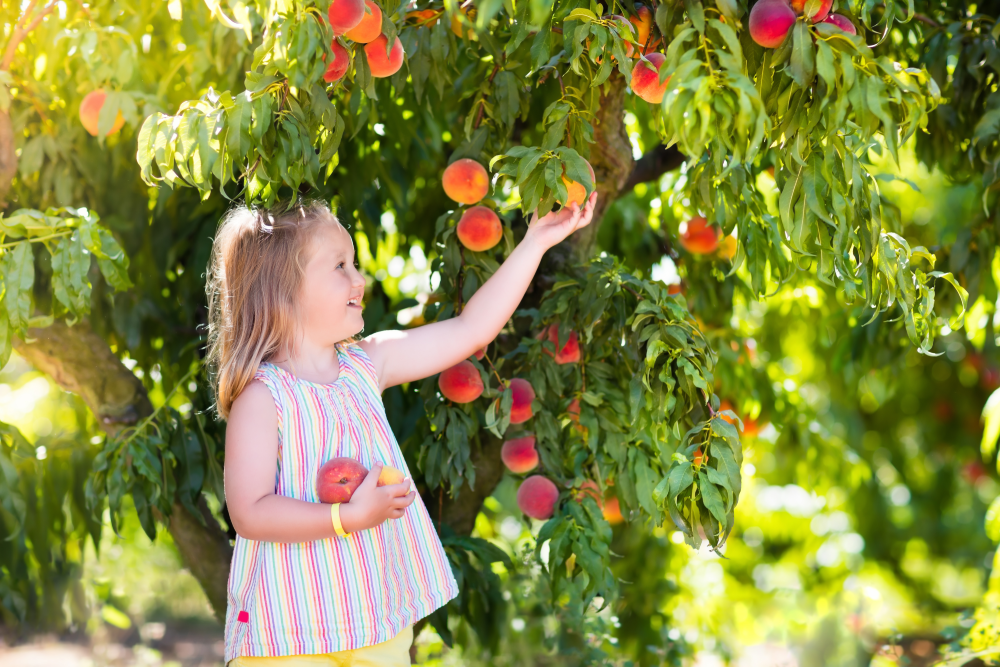
Fruit trees such as the Peach tree can be fun for the whole family, all the way from your yard to your kitchen!
- Nectarine trees: Nectarine trees can be grown successfully throughout northern Illinois and even areas in central Illinois. The nectarines fruit on one-year old wood so they need plenty of space to have an open canopy and they need to be pruned annually to promote fruiting. These trees are also vulnerable to fungal and bacterial diseases that can attack the fruit and make them inedible. The best types of nectarine trees to grow in the Chicago area include Sunglo, Redchief, Early Flame, Redgold, and Cavalier.
- Peach trees: There are many types of peach trees that can be grown in central and southern Illinois, but these peach tree types are not hardy enough to survive the harsh winters in northern Illinois. The peach tree type that can do well in northern Illinois is the Reliance variety. Like nectarine trees, peach trees grow vigorously and need space for their central canopy to open. They also need aggressive annual pruning as the peaches grow on one-year old shoots. Peach trees are vulnerable to brown rot that can be prevented with fungicide sprays and bacterial spot diseases.
- Cherry trees: There are two main groups of cherry trees: sour cherries and sweet cherries. Sweet cherry trees grow well in central and southern Illinois while sour cherry trees can be grown all over Illinois, including northern Illinois and the Chicago area. Sour cherry trees must be planted in well-drained soil in an area where they can get full sunlight. Once a cherry tree matures, it needs to be pruned each year. You should also treat your sour cherry trees with the proper fungicides to prevent cherry leaf spot disease. The best varieties of cherry trees to grow in northern Illinois include Mesabi, Suda Hardy, Meteor, Montmorency, and North Star.
- Berry bushes: A variety of bushes that produce berries, including strawberries, raspberries, blackberries, currants, and gooseberries, can be planted in northern Illinois. These berry producing shrubs should be planted in well drained soil and full sun as early as possible in the spring. They grow best in soil with a pH level between 5.5 and 7.5 and with organic matter mixed into the soil. You can consult this guide from the University of Illinois for the best small fruit crops to grow in northern Illinois.
Cross-Pollinating Fruit Trees
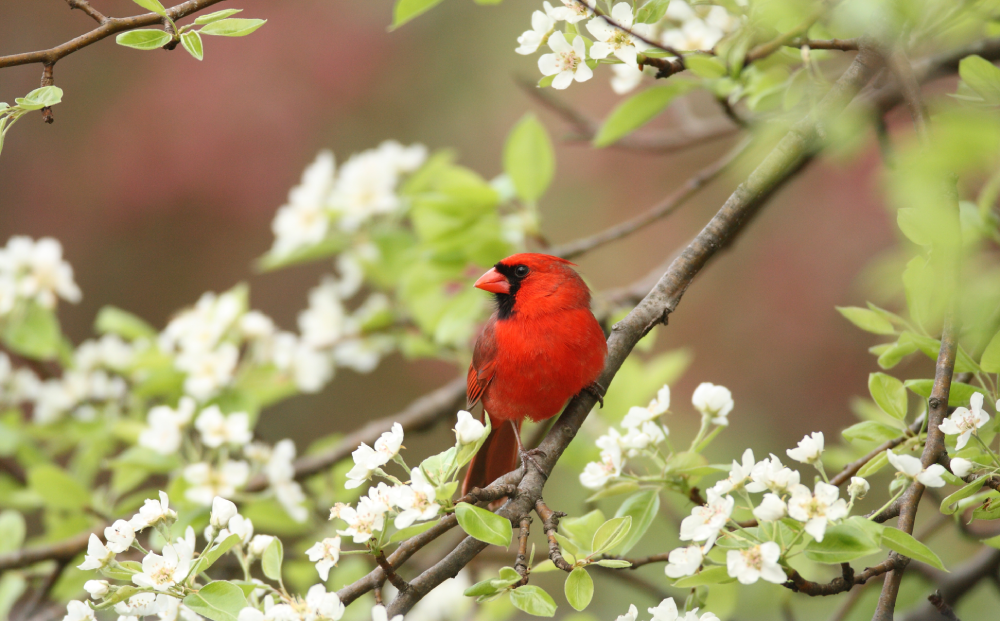
Fruit trees, such as this Pear Tree, also usually have beautiful springtime flowers. And yes, local wildlife will also appreciate the fruit that you “share” with them
- Apple trees: Apple trees are the first fruit trees many people think of and they are the most common fruit trees planted on private property in northern Illinois. Apple trees need to be planted in well-drained soil with full sunlight and they need to be planted deep enough to accommodate the root system. You should plant two different varieties of apple trees to ensure cross pollination. Apple scab is the most common disease that affects apple trees, but there are scab immune varieties such as Prima, Pristine, and Goldrush. Check this guide from the University of Illinois for a full list of apple tree types that can grow in northern Illinois.
- Persimmons trees: Persimmons are extremely nutritious fruits that ripen in the early fall from September through October. There are two main types of persimmon trees: Asian and American varieties. American persimmon trees are bigger than Asian varieties and require plenty of space to grow as they can get to between 35 and 50 feet tall. These trees are cold tolerant so they can survive in northern Illinois and they are disease and pest resistant. They should be pruned each year so they can provide excellent shade. Make sure you plant two American varieties of persimmon trees as an American and an Asian variety will not cross pollinate.
- Pear trees: There are plenty of pear tree varieties that can be grown in Illinois, but they require proper care to prevent the bacterial disease fire blight. Make sure you plant at least two different varieties of pear trees for cross pollination in well-drained soil with full sunlight. These trees do not need to be pruned as aggressively as other fruit trees and you need to be careful with fertilization because too much fertilizer will make them more susceptible to fire blight. The best varieties of pear trees to plant include Starking Delicious, Maxine, Moonglow, and Seckel; though Maxine and Starking Delicious will not pollinate each other. Redhaven and Yellow Contender pear trees are self-fruitful.
- Plum trees: There are two main varieties of plum trees: European types and Japanese types. The best plum trees to grow in northern Illinois are European types because they are hardy enough to withstand the cold weather and resist some bacterial leaf spot diseases. European plum varieties should be planted in well-drained soil with full sunlight and you need to plant at least two different varieties for cross-pollination. Both varieties must be European to ensure cross-pollination. You must look out for black knot disease which is the most serious threat to European plum trees in Illinois. The best European plum varieties to plant include Yellow Egg, Stanley, Dietz, Green Gage, Bluefre, and Damson.
Caring for and Planting Fruit Trees in Illinois
As you can see, there are a wide variety of fruit trees you can plant on your property in northern Illinois that will add natural beauty to your landscape and provide you with fresh fruit. When deciding which fruit trees to plant, choose trees that produce some of your favorite fruits and consider whether the trees you choose are self-fruiting or require cross pollination. You will have to plant two trees if you choose trees that only produce fruit through cross pollination.
The best time to plant a new fruit tree is during the spring. You have the option of starting from the beginning by planting seeds or planting a young fruit tree. Many fruit trees will not produce fruit for the first few years so planting a young tree that is already 3-4 years old will give you fruit right away. Make sure you consider the space, sunlight, and type of soil your tree needs when choosing a place to plant it.
Doing the following things when planting your fruit tree will give it a better chance of growing strong:
- When picking out a young tree, check the roots to ensure that they are healthy.
- Sweat the young tree by wrapping it in plastic and raising the temperature slightly and wait until the buds open before planting it.
- Consider planting your tree on elevated ground, or build a small hill, to prevent the tree from sinking.
- Stake new trees with bare roots to help them stand up.
Once you have the fruit tree planted, make sure you avoid the following actions:
- Do not use too much mulch or allow the mulch to touch the trunk. There needs to be several inches between the trunk and the mulch to avoid damage to the trunk.
- Do not fertilize the trees after you plant them because too much fertilizer can burn the roots. If you aren’t sure how much fertilization your fruit trees need, consult a professional arborist.
- Do not get upset if the local wildlife eats some of your fruit. There is simply no way to stop nature.
Fruit Tree Care from Hendricksen Tree Care
A fruit tree will provide your Chicagoland landscape with natural beauty and fresh fruit if they receive the proper care. Remember to choose fruit trees that produce your favorite fruits and make sure you know which trees you choose that require cross pollination so you can plant accordingly.
If you need assistance caring for your fruit trees, our arborists at Hendricksen Tree Care can help. We provide complete tree services that include everything from tree planting and fertilization to treating trees for diseases and insect infestations. We can also provide tree trimming to ensure that your fruit trees are properly pruned.
Hendricksen Tree Care provides commercial and residential tree care services in Arlington Heights, Northbrook, Park Ridge, Palatine, Lake Forest, Libertyville, Glenview, Wilmette, and the surrounding areas of the north and northwest Chicago suburbs.
